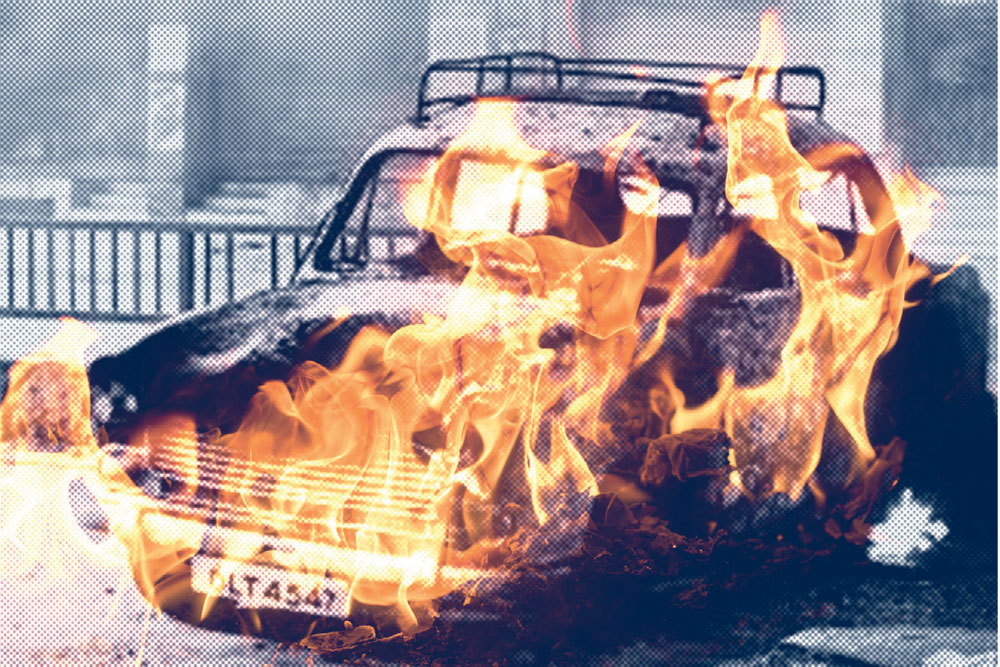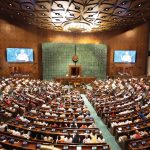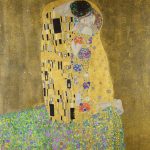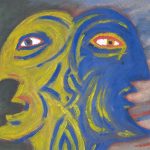Dialysis
A Story
 Navtej Sarna
Navtej Sarna
 Navtej Sarna
Navtej Sarna
 |
20 Dec, 2024
|
20 Dec, 2024
/wp-content/uploads/2024/12/Dialysis1.jpg)
(Illustrations: Saurabh Singh)
FOR SOME TIME NOW, I HAVE BECOME VERY God-fearing. Actually, to be honest, I have been terrified of God. When I was young my Gods were playful, smiling, loving, who went about their mysterious ways kindly. But as the years went on, I saw only an angry God if I shut my eyes, or looked skywards, or heard the temple bells. Some days I dared not even watch television: there too I saw the work of a vengeful God. Churning the seas and the rivers, tearing down mountains, setting fires that would not die down for days, causing earthquakes, destroying houses, cars, entire villages like matchwood with a wave of his raging arms.
My answer to this fear was prayer. I have three small rooms and a veranda in my house, a palace compared to the one room shanty in which my parents lived at the edge of Kotla Bazaar. The smallest room is only for God. Always full of incense, with a two-in-one music player playing bhajans. Actually, that music player should not be there. I try not to think of how I got it. But I let it stay. It seems to be praying too, trying to cleanse that memory for me. Perhaps the bhajans it plays will get to God faster than my prayers.
I would shut the door tight behind me whenever I entered that small room, even though there is no one else in the house. Not for the last fifteen years since Asha collapsed one early morning, her open eyes still searching for the seven-year-old boy, the sparkling, playful, innocent boy who still hadn’t lost all his milk teeth, and had even started writing English. She never recovered from the banshee screech of the van that came at that unholy speed around the corner as the boy was cycling back with, the half kilo of potatoes hanging from his handlebar. The neighbours pulled out the van driver and beat him up with chappals, sticks, bricks, and their bare hands. I could not even vent my anger at him. In his face, his face with its thin moustache and paan-stained lips, I saw the face of my angry God. I knew then that one could escape retribution at the hands of fellow men; one could evade, deceive, bribe, stay out of prison, even thrive. But how does one bribe the One who has everything? How does any man deceive the One who knows everything? Or evade One who is everywhere?
I could only pray. So I would shut that door, shut my eyes, fall on my knees and pray very hard. I would start to tremble uncontrollably. Tears flowed even from my tightly shut eyes and I let them. I would say a lot of things to God then and for a while I would not be scared. I needed to say those things so that I could fall asleep, so that the vice that holds my heart would loosen a bit, for a while. Something, I felt, must be getting through to Him; that is why I, two over sixty, was still on this earth. Or perhaps He was not placated even a bit, and that is why I was still on this earth.
Perhaps a tirtha yatra, I used to think, a pilgrimage to Char Dham in the mountains, would help me. I would have gladly borne all the dangers of the journey. No genuine pilgrim is scared of landslides and storms. I would have gone with one of the yatri groups, singing bhajans all the way. They go in comfortable tempo travellers with good music systems, with vegetarian food stops and clean places to sleep in. So much more comfortable than the tirtha yatra that Babuji and Ma had gone on, all those years ago. They would have been my age, roughly. This is usually the age when we start preparing for meeting the Maker, looking at our debit and credit, even as we try to live on forever. But one knows death will come and honestly, one of the things I pray for in that small room is that when it does, it should come quietly, and liberate me for my burdens, especially those that only I – and God – know. Babuji and Ma went that way, quietly, in their beds, he two years before her. I poured Gangajal in their mouths. All in the order of things. But in my life there is no order, no son to pour Gangajal, or light my pyre and perhaps there are too many sins for even death to carry away.
I had started preparing for that pilgrimage quite seriously, even winding down the property dealer’s office that I run in the veranda, shielded by a bamboo chick curtain. There’s nothing much in that office. A second-hand computer that I hardly use; it’s more to impress clients. Some files with old receipts and vouchers and draft rental agreements and many dusty copies of a flier that I had got printed when I first started out. I am superstitious so I don’t throw them away, though they are no use anymore. All in a small, used metal cupboard that I bought in Amar Colony. A green metal desk with a calendar and a small idol of Ganesh ji. A wooden board that says “Manohar Lal, Property Dealer, Rent Sell Buy” hangs on the bamboo curtain. It always reminds me of the first board that I had made for myself more than forty years ago. White on black it read “Mannu – Cycle Penchur Wallah” and was hung, using a metal wire that passed through two neat holes and was twisted into tight knots like a school-girl’s plaits, from the lowest branch of the neem tree under which I had set up shop in Seva Nagar. That board is also in the metal cupboard.
But that tirtha yatra was not to be. That’s the problem with this life. Haramzadi saali zindagi. It’s a very strange creature. You think you are going one way and then suddenly it holds you by the nose and turns you to another direction. Or maybe that’s God’s way of telling us that we are nothing, just little crawling insects. I came out one morning from the temple room and swooned as a sudden wave of weakness swept over me. I would have fallen but I managed to hold on to a chair until my head cleared. I could not eat anything that day, not a bite of the roti and aloo-palak that Kanta Bai, who comes every morning for an hour, had made and left in the kitchen. I tried to eat the dhaba food that I love – tomato paneer, black daal – but that too made me nauseous. Then other things started going wrong with me. I was unable to sleep well and had to get up too many times to pass urine and it came out bubbly like soap water. My face in the mirror did not look like my face. Dark pouches hung under my eyes and my skin was pale, almost yellow, and itchy. I knew then that I was sick.
But that tirtha yatra was not to be. That’s the problem with this life. Haramzadi saali zindagi. It’s a very strange creature. You think you are going one way and then suddenly it holds you by the nose and turns you to another direction. Or maybe that’s God’s way of telling us that we are nothing, just little crawling insects
DR DEVDAS LOOKED at me very carefully, all over. He gives that much time and attention to everyone who steps into his small clinic at the end of my lane. He hardly takes any money, almost as if he doesn’t need any. He always wears a— sometimes I think he only has one— loose white shirt, buttoned at the wrists, unstarched. And always the old-fashioned pleated black trousers, with cuffs at the bottom and metal buckles at the waist. Only during the winter does he put on a maroon sweater with two pockets. He doesn’t talk much; he smokes a lot. Of course, he doesn’t tell anyone to stop smoking. There is an old picture that hangs in his office along with his degree. The picture shows a bald man in a robe. I asked him about it. Guru of all doctors, he replied, and pronounced some foreign sounding name that I cannot recall now. He made me lie on the metal table covered with a green rubber mat and a white sheet. He first measured my blood pressure with a machine that had a rubber ball like the horn of old rickshaws attached to it. He looked into my eyes, my ears, my mouth with a torch and then felt each bit of my body with the probing tips of his long thin smoke-stained fingers. Then he lit a cigarette, shook the match to put it off and thoughtfully blew smoke away from me. Taking out a fountain pen from his shirt pocket he then wrote out a prescription on a pad that had his name and degree printed on it.
“Blood and urine tests,” he explained. And then looking straight into my eyes, he asked: “You have money?” Without waiting for my answer and pushing the cigarette to a corner of his mouth, he continued: “Private lab you will not be able to pay for, the sarkari hospital will send you to hell anyway. Go to that charity dispensary in Lajpat Bhawan. They will do your tests free, or next to free. Something is still all right there.”
He was right. In a small low building at the back of Lajpat Bhawan, they took my blood in many tubes; I felt nauseous again just looking at those tubes with different coloured rubber stoppers on which the man carefully put my name. Then they took an X-ray of my chest and told me to come back for the reports at five in the evening. But I could not go anywhere. I was too tense. I parked my scooter near a low hedge and waited under the neem trees. I watched some boys playing volleyball and on the other side, through an open door, I could see some women grinding masalas in a courtyard. In another low building a man, with spectacles pushed up high on his forehead was sorting out old clothes that had been left as donations. Shirts, napkins, towels, sheets, old sweaters…. He meticulously looked at each one, judged its condition and then put in one of the three cardboard cartons behind him. Finally, at five, they gave me my reports. I still had time to take them to Devdas babu before he shut his clinic.
“Don’t go on any tirtha yatra,” was his advice after he read through everything “otherwise you may get so near to God that he might ask you to stay with him there and then. It’s just as I suspected. Your kidneys are shutting down. I don’t know how long you have had diabetes and clearly you haven’t done anything about it, not even tested your blood. This was bound to happen.”
Then he wrote DIALYSIS in capital letters on a piece of paper and circled it. Lighting up his cigarette, he explained it all to me. My blood was not being cleaned properly on its own. The machinery for that was damaged by years of high sugar in my blood, all the jalebis and laddoos that I loved. So I needed to be put on a machine that would take out all my blood, clean it and put it back. Three times a week. For how long? Forever, or as long as I lived, that is. And costly? Very.
That night I could not sleep. Perhaps at dawn I did doze off for a while in the small temple room.
THAT IS HOW, instead of looking for salvation in the temples of Char Dham, I started looking for a dialysis centre in Delhi, the best—and more important, the cheapest—place to get my blood cleaned thrice weekly. Devdas babu had done everything that he could, given me names and locations. Now it was up to me to choose. Of course, he had circled one, as is his habit, and also put a tick mark on it. This was the free dialysis centre started a couple of years ago by the Sikhs of Delhi in the Bala Sahib gurudwara close to the Yamuna bank. He told me it had clean, good machines. The Delhi Sikhs have enough money to get good new machines. Most importantly the place was free, if you were lucky to get a bed.
I knew somewhere that I didn’t really have a choice. The private clinics would have made me sell my scooter and then my house and sent me back to the slums. What would have been the use of living like an insect of the drains, a shanty dweller like my parents
I knew somewhere that I didn’t really have a choice. The private clinics would have made me sell my scooter and then my house and sent me back to the slums. What would have been the use of living like an insect of the drains, a shanty dweller like my parents. And who wanted to go to a government hospital, stand in those long queues when I could no longer stand for more than fifteen or twenty minutes, wait for weeks before I got an appointment? I would have been ash and smoke before I got that appointment. And even then I may not have lived. The machines are unclean, the needles are used many times and God knows if it would be my own blood that would be pumped back into my body. They say they get blood from Tihar jail, the blood of thieves, murderers, rapists. I have managed with God’s grace to stay out of that place all these years. I didn’t want it to now get into my body through dirty blood. But yet there was something—and of course, I knew what that something was— that stopped me from immediately taking my medical reports and going to that dialysis centre in the gurudwara. So I put the piece of paper on which Dr Devdas had written DIALYSIS— behenchod I can’t even pronounce it—as well as the list of centres under the incense holder in the temple room and left it in God’s hands.
I BROKE OUT IN A cold sweat at the first sight of the building from the long flyover that goes all the way to Sarai Kale Khan. Ramesh, my neighbour’s 18-year-old son who offered to take me to the centre in his Wagon R van, pointed it out to me. Hundred beds he said reading the sign from the distance. He is sharp-eyed and too young to be haunted by a past. But I was sweating into the collar of my safari suit as I stared at the milky white dome of Humayun’s tomb through the dark glasses which I had specially worn that day. I had decided to take my chances because that morning when I entered the temple room, I thought I detected, after a very long time, a thin smile on God’s face.
Ramesh parked his van under the trees. Nobody had asked us any questions as we came down the slope from the arched gateway and entered the compound of the centre through a half open iron gate. I could see the shell of a half completed building behind the centre and a bit further the white dome of the gurudwara, its yellow pennant flying high. I held my medical reports in front of my chest like a shield as we walked to the reception. I kept my dark glasses on and I tried not to show any panic, any fear in my walk. I avoided making any eye contact with the men in turbans, a doctor, a guard, a patient’s attendant who were passing through the lobby.

I don’t know what exactly I was afraid of. No, that is not true. I do know what I feared. I feared being recognised, identified. I was afraid that somewhere an old photograph of mine, some black and white grainy photo, would show up, or my name or my date of birth would bring up something on the computer, maybe a link to an old news story. Even I, a sixth-class pass, know that nowadays everything, even 40-year-old details, come up on the computer. I began to panic, my legs melted, my mouth went dry. I should never have come there, I cursed myself, this was the lion’s den this was where everything was under the control of the Sikhs of Delhi.
But Ramesh held me by the elbow. He knew instinctively that I was nervous and scared.
“Everything will be fine Uncle ji,” he said.
They went through my medical reports while I stood there, breathing hard. If they identified me, I thought, if they realised that the patient Manohar Lal was the same as Mannu the puncture repair boy of 1984 then anything could happen. These people, these Sikhs, never forget. They avenge every attack on their religion or their gurudwaras or their country. They used to harass and chase Nadir Shah and Abdali. I have heard of Bhagat Singh— who hasn’t—who killed a police officer after Lala Lajpat Rai was attacked. And there was the other sardar who shot the angrez Governor after chasing him for 20 years. They killed Indira Gandhi didn’t they because she sent the army into their holy gurudwara in Amritsar. What am I, an unhealthy sick man, for these people? Any of these big bearded tall men who I could see walking down the slope towards the gurudwara could tear me apart with their bare hands. Or they could take an iron rod and one blow on my head would burst it like a melon and my brains would be splattered all over this marble floor and no one would ever know. Or they could call in one of the fierce Nihangs who are usually sitting in the gurudwaras holding their sharp spears, with steel rings on their tall turbans. One thrust of the spear would be all that it would take and no one asks Nihangs any questions.
Or they could do it all cleverly, quietly, bloodlessly. They might empty my body of all my blood then switch off the machine and go for tea. I would be dead in minutes and they could so easily say that the man was already half-dead when he came in, his kidneys had already failed, his blood was already poison.
“Chalo Uncle ji,” Ramesh nudged me out of my cascading thoughts, “we have to see the doctor.” He had collected the file and the registration slip and no one had asked for any money so far.
“Bathroom first,” I told him and went in search of the toilet. I washed my face and stared at myself in the mirror. Balding, fat, paunchy, hanging jowls, grey dull safari suit, a yellow and blue ball point pen in one pocket, dark glasses, a plastic bag in one hand. Perhaps I am safe after all, I told myself. It would be difficult to recognise Mannu, the puncture repair boy in Manohar Lal, Property Dealer.
BESIDES, it had been dark.
It was dark and cold when we entered that narrow lane a day after they shot the Prime Minister. By then I didn’t care for the dark or the cold. My blood— this same blood that needs to be cleaned by a machine— was running warm and fast in my veins. So much had happened in the 24 hours since I had heard the news the previous afternoon, while I had still been in my shop.
I don’t know what exactly I was afraid of. No, that is not true. I do know what I feared. I feared being recognised, identified. I was afraid that somewhere an old photograph of mine, would show up, or my name or my date of birth would bring up something on the computer
Shop! Actually, my shop was a piece of sackcloth under the neem tree near the Seva Nagar market. Every morning I would set out my tools on that cloth in a neat row—the hammer, three spanners, a screwdriver and a tube of solution to fix the punctures. Next to it was a wide basin with water in which I could test the tubes after filling air in them with the hand-pump that stood on one side. Every evening these tools and the sackcloth would be packed up in a green wooden box that I had found lying next to a garbage dump. Bishen, the paan-wallah, allowed me to keep the box in his kiosk every evening. Maybe he liked me, or maybe he thought that every person who had a puncture repaired would stop by for a paan while he waited, or buy a Charminar cigarette and light it with the smouldering rope that hung from the edge of the kiosk. Or perhaps he was just one of us, the poor and the unfortunate lot. Perhaps he too had ambitions like me—to become rich one day, to have a car and servants, a nice, fair, good-looking wife and to live in a big house in one of the wealthy colonies of Delhi.
It was on Bishen’s transistor radio that we first heard the news. And it came from vilayat.
“Arre, this is from the BBC. It has to be true.”
Indira Gandhi had been shot. Killed by her own guards. And they were Sikhs. The group that gathered around that transistor radio grew bigger and more and more angry and vociferous. By the evening when even All India Radio announced her death, the anger around the paan-shop had reached boiling point.
“They are traitors, gaddar hain sab sardar!”
“She was our mother. They’ve killed our mother!”
“They need to be taught a lesson. They will be taught a lesson!”
Someone who had been at the hospital where the Prime Minister had been kept said even the President’s car had been stoned because he was a Sikh, that mobs were stopping buses near INA market and pulling out Sikhs. Sikh houses and shops were already being attacked in other colonies near Ring Road. A man had been set on fire on the Safdarjung flyover and survived only by jumping off the edge.
That night there was no sleep. Only a burning excitement, the nurturing of anger, the kindling of naked animal lust.
THE NEXT MORNING, Bishen did not open his paan shop.
“Oye, Mannu,” he called as soon as I reached. “Come! We’ve got work to do.”
Soon we had a group, some known men, some strangers but all gripped by an angry excitement. Bishen led us to the crossing at the edge of Kotla where a man wearing a black jacket over a white kurta was standing on a chair and gesticulating wildly.
“Today we will avenge her blood with their blood. Khoon ka badla khoon! Let no Sikh remain alive in this city, not even a Sikh child. Burn their houses, their big houses built with our hard work. Burn their big cars…We will tell you where to go, we will give you the tools to do this work.” Iron rods were being distributed from a half truck. Some of us even got a hundred rupees…a hundred rupees!
We entered Defence Colony led by a man on a scooter with a local shopkeeper riding pillion. Together they pointed out Sikh houses looking at a voter list in the shopkeeper’s hand. We broke into some houses, set fire to curtains and carpets. Someone sprinkled a can of kerosene oil on an imported car and set it ablaze. Its horn wailed all the time as it burnt. Those houses were something else inside, bursting with expensive things. I couldn’t decide what to pick, what to leave. I wanted everything. Ultimately, I took a small music system that could easily be carried away. But that morning only whetted our appetites. Most of the Sikhs seemed to have run away or were being shielded by neighbours.
Then suddenly the mob turned away. A bus had appeared from nowhere and Bishen shepherded us all into it.
“Chalo! Jaldi! All Delhi belongs to us today. Where will these bastards hide?” he said. Inside the bus we were given packets of a white powder. “Be careful with this,” said the man who distributed it; I had never seen him before. “It can burn your skin to ash, set you on fire.”
The bus took us across the river, through Delhi’s deserted streets. Delhi did belong to us. We shouted slogans as we went.
Sardar Gaddar hain…khoon ka badla khoon. Indira Gandhi amar rahe!
We entered the lane in a rush, hungry for Sikh blood, lusting for Sikh flesh, holding our iron rods in front of us. We felt powerful, courageous, justified in everything we did. We were like some ancient warriors, seeking revenge for the murder of our leader. I can no longer deny that we knew that the people we were going to attack had nothing to do with the killing of Indira Gandhi. We knew it and they said so, as we pulled them out of their houses. Those small houses on those tiny plots of 25-square yards each that had been given to them when Delhi was being cleaned up for the gaze of the rich and powerful. There was no place for them to hide in those houses, nowhere to run to. We dragged them out crawling, crying. Their women begged for the lives of their sons and husbands, fell on them to protect them from harm, beseeched us for mercy with folded hands.
But we had tasted blood and wanted more. We humiliated the Sikhs the only way you can humiliate them. By throwing their turbans in the mud and the grime of that dark lane, by catching hold of their long hair that their Guru told them to keep and cutting it with scissors and knives, by making them writhe and sizzle as we threw the white powder on them or doused them with kerosene oil and set fire to them. Alive.
Or garlanded them with tyres. Like that trembling old sardar who stood in front of Bishen, his long grey hair open in disarray, his hands folded. With a swipe of a sharp knife a man from the circle stepped forward and cut off the old man’s ear and the blood spurted. Then the other ear.
“Please, leave my son”, the man whimpered. “He’s only 13.”
“Garland the bastard, maderchod,” Bishen shouted. I don’t know how these tyres came to us but they worked. A man put a tyre around the sardar’s neck and then poured kerosene oil from a cannister into the hollow.
“A match, a match.”
But there was none even as we fumbled in kurta pockets. A policeman standing across the narrow lane, a lathi in hand, threw a matchbox and I deftly caught it. It didn’t take me a minute to light a match expertly and fling it on the kerosene. We moved back and the sardar began his dance of death as he went up in flames and his shrieks rose and died.
Meanwhile someone had made short work of the 13-year-old boy. “Spawn of a serpent, he must die,” said the man who wielded the iron rod and the young head split open like a melon, the brains splattered not far from his father’s body.
From house after tiny house, the men and the boys were dragged out, battered, burnt. Then we herded the women together. And this is what I, now a God-scared man, don’t often admit even to myself. How we took turns on that young girl, eight, ten of us, in a shelter down the lane. She fought and struggled, and then she spat at me and that ignited me even more. Then, as we went at her one after the other, she lost her will to fight and her eyes stared emptily skyward. She was a bleeding rag when we finished with her and then she crawled back into the lane, her long hair open and wild, not a scrap of clothing on her body.
A light probed the darkness of the lane. A motorcycle was slowly coming towards us. Police! No, the police were already there and had done nothing. Nosy press-wallahs maybe. I slipped into the shadows. I was one in a crowd. No name. Just one in the crowd in the darkness, a pair of eyes, a straight face. Wearing a black T-shirt bought in a pile in Seva Nagar market that said America, my young blood so hot that I did not feel the cold.
EIGHT WEEKS NOW, three times a week, I have come to this dialysis centre and no one has recognised me. No one has asked me for a rupee in payment. Or asked me to fill a form to declare what religion I belong to, which God I worship.
Three times a week, the doctor with the snow-white turban, the greying beard, the kindly eyes behind gold-rimmed spectacles, the yellow tie, watches over me and the 35 other beds in that hall. He has a few words and a warm smile for me and for everyone in those beds—men and women, young and old, Muslims Hindus Sikhs. The only thing that matters to him is that the poisoned blood, the crimson blood that runs through all their veins, should become clean and each of the patients can go back to their jobs and families, until the next time.
I have become used to the place. I talk to people now, sometimes to the doctor, more often to the nurse from Kerala, or the kindly lady at the reception who keeps a tray full of toffees for the patients. I have discarded my dark glasses and slowly I am discarding my fear of being recognised. I tell myself that many others — including big names — haven’t been caught and punished and I was just a minor actor. Perhaps it was too dark, or nobody cared and there is actually no record, no photograph, no news report on the computer. Or perhaps these people have just moved on, buried the past.
I too know the story of the gurudwara behind the dialysis centre. How, more than three and a half centuries ago, the eighth Sikh guru, himself a child, took upon his own body the scourge of the city’s smallpox, the pestilence that had ravaged Delhi. He then retired to this spot beside the river and here his soul merged with the eternal. I began visiting the gurudwara some three or four weeks ago. I hesitated to go in at first, and then one day I stepped into the big hall, a handkerchief covering my head. Someone was reading softly from the holy book and involuntarily I bowed my head. I go there regularly now. I spend the evenings in the jorha ghar— the long room where the faithful deposit their shoes before they go into the gurudwara. I put the shoes into pigeon-holes on the metal rack and look after them. Before I hand them back, I make sure I have cleaned them of all their dust and grime. I cherish the sense of peace, the absence of fear I feel in that small act. I know then that I have chosen the right place to heal.

/wp-content/uploads/2024/12/Cover_Double-Issue-Spl.jpg)












More Columns
Love and Longing Nandini Nair
An assault in Parliament Rajeev Deshpande
Pratik Gandhi’s Great Year Kaveree Bamzai